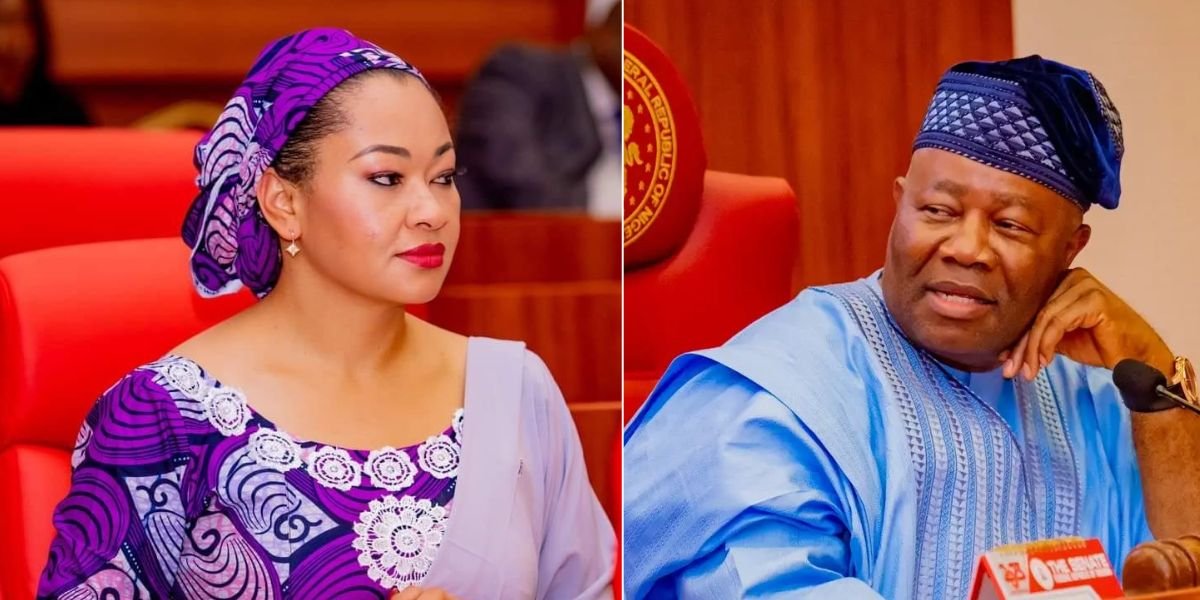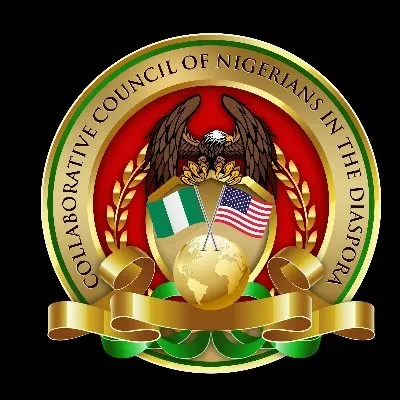Achieving Accountable and Agile Leadership for Sustainable Development in an Interconnected Global Environment
Ladies and gentlemen,
I am truly honored to address you today at the Third International Conference on Africa’s Sustainable Development, hosted by Anchor University, Lagos, Nigeria. It is both a privilege and a pleasure to stand before this distinguished audience, composed of esteemed faculty, professionals, students, and fellow Nigerians who have dedicated their valuable time to be part of this significant event in the beautiful and historic city of Lagos.
Your presence here today reflects not only your recognition of our collective identity on the international stage but also a deep sense of national pride, demonstrating a profound commitment to our beloved Nigeria. I wholeheartedly appreciate this opportunity to engage with the business sector, and I am particularly delighted to be here, given the historical partnership between your institution and the Nigerian Diaspora Forum. Our shared values—dedication to enhancing economic opportunities for all, belief in human potential, commitment to fostering the right conditions for private enterprise to thrive, and sustainable development—highlight our shared mission to serve society.
In an increasingly interconnected global context, accountable and agile leadership is paramount for achieving sustainable development. My focus today is on the intricate interplay between the Nigerian economy and the global economy, with a particular emphasis on the concept of sustainable development. While there are undoubtedly formidable challenges facing Nigeria and the wider African continent in this era of heightened economic interdependence, there are also remarkable opportunities awaiting us. How can corporate leaders, labor unions, policymakers, and other stakeholders, including the Nigerian Diaspora, come together to identify the solutions necessary to forge enduring, equitable, and widely supported strategies for sustainable development? Your collective actions hold the key to fostering growth and creating employment opportunities.
Globalization is about to undergo a profound shift and we need more assistance from the international community and accountable leaders to manage our resources. I have emphasized the importance of a well-functioning International Monetary Fund (IMF) for Nigeria’s sustainable development, as well as the IMF’s role in the broader African economy. An examination of the IMF’s most recent forecasts reveals that there are no particularly encouraging signs of recovery, and the global economic growth remains sluggish. Similarly, a recent report from the Sustainable Development Goals Center for Africa, titled “Africa 2030: Sustainable Development Goals Three-Year Reality Check,” indicates minimal progress and, in some areas, a complete standstill. We must also reevaluate the 2030 Agenda for Sustainable Development, endorsed by all United Nations Member States, that provides a shared framework for sustainable investments and transformation, uniting productivity and sustainability.
The African Union’s Agenda 2063 and the publication “Africa’s Development Dynamics 2023” both underscore the varied economic development rates among African nations. It is evident that many African countries, including Nigeria, have yet to fully experience the right conditions for private enterprise to thrive. Collaboration among African nations is essential to advance our shared interests. Progress on such global challenges demands a collaborative acknowledgment of the seriousness of the challenges. Achieving sustainable development and making a meaningful impact requires individuals like you, along with institutions working together through extensive networks and coalitions. Given the dynamic nature of complex systems, it necessitates innovative and adaptive leadership approaches, calling for fresh and creative strategies that involve diverse networks of stakeholders and leverage their complementary skills to achieve sustainable development.
Nigeria faces the complex task of reconciling economic objectives of productive transformation with social and environmental goals like inclusivity and climate resilience while prudently mobilizing and allocating investments. The current funding sources are insufficient to support job creation, inclusive growth, and regional integration. To enhance Nigeria’s position in global and regional value chains, it is imperative to properly integrate foreign direct investments into local economies. Policymakers and politicians must accept the challenge that the era when debt appeared to be the solution for all issues may be coming to an end. This is due in part to the significant escalation of global debt and the impending shift in the landscape of globalization.
Role of Nigerian Diaspora – Strategic Asset
I want to draw your attention to an important issue that has a significant impact on the development landscape in Africa, particularly in Nigeria. Several factors have contributed to Africa’s lag in development when compared to other continents. These challenges are complex and multifaceted, but they present us with an opportunity to address them strategically.
One of the major contributing factors to Africa’s development challenges is the lack of comprehensive and committed diaspora engagement policies. The African Union has reported that more than 70,000 trained professionals leave Africa annually, making it one of the highest levels of skilled professional emigration globally. This is a trend we need to reverse.
In Nigeria, the departure of thousands of skilled workers since 1990 has further hindered the progress of development projects and, by extension, sustainable development. Each Nigerian professional who leaves the country costs it $184,000, according to the United Nations Commission for Trade and Development. These figures underscore the urgency of the situation.
However, amidst these challenges lies a vast network of potential development partners—the Nigerian Diaspora. Their knowledge, networks, and social capital can make a significant contribution to development initiatives. Beyond their essential role in sustaining livelihoods and social services, they can become vital catalysts for positive change.
To fully unlock the diaspora’s potential for sustainable development, the Nigerian government must create an environment conducive to their active participation through financial, social, and political means. Simplifying regulations and establishing business-friendly policies will encourage foreign and domestic firms to invest in Nigeria and enable the diaspora to confidently engage in outreach strategies within their spheres of influence.
The Nigerian Diaspora has played a crucial role in maintaining Nigeria’s prominent position in global affairs. Rather than viewing them as a burden, millions of people around the world see the Nigerian diaspora as a valuable asset, much like the Jewish and Chinese diasporas. If we are serious about sustainable development, the President should not only to visit countries like the USA, UK, Australia, Canada, Singapore, and Israel, but also to engage, appeal to, and inspire the Nigerian diaspora to reconnect with their Nigerian heritage and contribute significantly to the development of their homeland. Every Nigerian abroad should be considered an ambassador, fostering relationships with communities in London, New York, Toronto, Houston, Washington, DC, Seoul, and Sydney.
The Nation’s Seventh Region
Sustainable development is a goal we all aspire to achieve, and to do so, it is imperative that we fully integrate Nigerian Diaspora engagement into our state, regional, and national policy frameworks. The African Union has recognized the diaspora as the sixth region of Africa, acknowledging their vital contributions to the realization of AU Agenda 2063. This recognition highlights the importance of harnessing the immense potential of our diaspora community for the betterment of Nigeria.
In light of this, we propose that the Nigerian government takes a step further by formally acknowledging the Nigerian Diaspora as the nation’s seventh region. Such recognition would not only be a symbolic gesture but would also set the stage for a more concrete and proactive approach to diaspora engagement.
To effectively address the unique needs and challenges of our diaspora community, we propose the establishment of a dedicated Ministry of Nigerian Diaspora. This ministry would serve as a focal point for facilitating communication, support, and collaboration with our diaspora members, in line with best global practices. By doing so, we can tap into the knowledge, networks, and resources of the Nigerian Diaspora to drive sustainable development initiatives.
In envisioning this seventh region, we suggest that it be represented by three senators and representatives from various regions with substantial Nigerian diaspora populations. These regions would include North America, Latin America, Central America, Asia Pacific, China, the Middle East, and Sub-Saharan Africa. By ensuring this diverse and widespread representation, we can harness the full potential of our global diaspora community.
By taking these steps, we are not only demonstrating our commitment to sustainable development but also sending a clear message that the Nigerian Diaspora is an integral part of our national identity and future. We have a remarkable opportunity to unite our nation, bridging the gaps and fostering prosperity through collaboration with our diaspora.
It is worth noting that regardless of the administration in power, the Nigerian government must recognize the Nigerian Diaspora as a “strategic asset” and encourage them to facilitate the underpinnings of industrialization and internationalization of Nigerian trade and exports through their global networks and attract investment to the various regions of the nation.
Collaboration among Africa’s Largest Nations
At this point, I want to bring to your attention to another issue of utmost importance that concerns the future and prosperity of not only Nigeria but all African nations.
The recent spillover analysis conducted by the International Monetary Fund has shed light on a crucial aspect of our economic and political landscape: the close ties between our fortunes and the world’s five largest economies. This interconnectedness is a stark reminder of the significance of our role in the global arena. It serves as a powerful call to action for us to embrace international collaboration.
I firmly believe that a committed collaboration among at least five of Africa’s largest nations, including Nigeria, in adopting more comprehensive and cohesive policies, can have a substantial positive impact on our long-term growth. Such an alliance has the potential to boost our collective growth by at least 5%. By working together, we can create an environment that fosters sustainable economic development, innovation, and progress.
Embracing interconnectedness is a key element of this strategy. It is crucial to show that events and developments beyond our borders, such as the European economic recovery or the efficiency of supply networks in Asia, need not have an increasingly negative impact on African nations. By coordinating our efforts and resources, we can insulate ourselves from the adverse effects of global fluctuations and better position ourselves to seize opportunities in the ever-changing international landscape.
In the spirit of unity and progress, I encourage us to explore the possibilities of deeper collaboration and mutual support. By doing so, we can not only fortify our nations against external shocks but also pave the way for a future in which African nations stand strong, resilient, and prosperous on the global stage.
Deterioration of the Economic Situation in Nigeria
Businesses worldwide currently contend with a confluence of challenges, including geopolitical uncertainties, rising interest rates, domestic economic downturns, and elevated inflation levels. In Nigeria, the most pressing economic issues revolve around poverty, healthcare deficiencies, unemployment, corruption, subpar education, and neglect of the manufacturing sector. The neglect of the manufacturing sector is a key issue, as Nigeria currently does not produce enough to meet both domestic and export demands, leading to a shortage of foreign exchange, a failure to create sufficient jobs for new entrants to the workforce, and an import bill that far exceeds current export revenues.
With an unemployment rate of 33% and a youth unemployment rate of 43%, many Nigerians have experienced the despair of fruitless job searches. In 2022, an additional 35 million Nigerians were pushed into poverty. Moreover, Nigeria’s inflation rate surged to 21% in 2022, compared to an average of 10.6% for emerging and developing economies and 8.8% globally. It is imperative that we reverse this trend.
Any domestic programs or international strategies aimed at sustainable development must prioritize job creation as a fundamental component. The participants in today’s conference, particularly those from the business sector, hold a significant role in this endeavor. Policymakers and political leaders must play a crucial role in creating an environment that fosters economic growth, job creation, and the flourishing of both citizens and businesses, given Nigeria’s dismal tax collection, standing at only 9% of GDP.
The key drivers of Nigeria’s prosperity have traditionally been oil production and other sectors that provide limited job opportunities and business prospects for the majority of Nigerians. Unfortunately, the record shows that theft of oil in Nigeria has resulted in significant financial losses, with an estimated $2 billion lost to oil theft between January and August 2022, equivalent to around 5% of the nation’s $41.4 billion in petroleum exports for 2021. In order to reverse this trend, it is imperative that we take concrete steps to stop the theft of oil and poor accounting practices.
The economic situation in Nigeria has deteriorated to alarming levels, demanding careful financial resource management and long-term macroeconomic stability to avert further socioeconomic crisis. This includes:
- Reducing the financial burden of the National Assembly and redirecting funds toward essential priorities.
- Reducing reliance on single suppliers and focusing on strategies for sustainable growth to render their supply chains less susceptible to natural disasters, pandemics, and geopolitical upheavals. This will require investment in infrastructure such roads and better transportation systems.
- Improving trade between African nations and cooperation between developed and developing market enterprises can address the myriad macroeconomic challenges facing African markets.
- Embracing global and distributed commerce can reduce inflation, enhance supply chains, stimulate the economy, and boost foreign direct investment (FDI) inflows, which currently lag behind those of other developing nations.
- Reducing the pervasive corruption, political instability, lack of transparency, security concerns, import restrictions, that have constrained Nigeria’s potential for foreign direct investment.
- Ensuring that the Federal Government gives improving educational systems a top priority so that future leaders can be prepared to face the responsibilities and difficulties of the twenty-first century.
Conclusion
To achieve sustainable development, we must adopt responsible, creative, and adaptable leadership strategies that engage extensive networks of diverse stakeholders to accelerate the formation of a shared vision for sustainable development. This agile leadership approach is particularly suited to addressing complex global challenges, from public health crises to unemployment, poverty, environmental degradation, and armed conflicts, all of which pose significant risks.
We must recognize that Nigeria’s financial sector transformation is not the sole responsibility of Nigeria; it requires coordinated action across multiple nations and regions to ensure the smooth operation of the entire African financial system. The ultimate goal is to develop a more capable financial system that supports the real economy, fosters sustainable development, and is less susceptible to instability.
Our very survival is at stake due to the ongoing degradation of our environment, much of which results from human and economic activities. Nigeria must reduce gas flaring and increase the production of clean energy by incorporating private sector participation. We must act urgently to make our actions more sustainable and reduce these risks.
A systematic approach is required, one that identifies barriers, devises solutions, and brings together stakeholders to implement action plans that will generate sustained, broad-based economic growth and poverty reduction. Nigeria faces a critical choice, as it can either continue along its current path or embrace essential macroeconomic and structural reforms to unlock its substantial potential.
As we strive to achieve the Sustainable Development Goals established in 2015 as part of the historic 2030 Agenda for Sustainable Development, the Nigerian Diaspora seeks innovative solutions to address the multifaceted challenges we face. To realize the Nigeria of our dreams and foster sustainable development, we must all work together. Nigeria can benefit from responsible and adaptable leadership within our intricately interconnected global systems for sustainable development.
As we move forward, it’s crucial that we focus on solutions to harness the potential of the Nigerian Diaspora. By developing comprehensive and inclusive diaspora engagement policies, investing in human capital development, and emphasizing economic democracy, we can begin to address these issues and turn the tide toward sustainable development.
What I have sought to convey today is a vision of a collective journey, where we join forces to pursue global stability and shared prosperity. The Global Nigerian Diaspora plays a crucial role in this shared mission, focusing on accountable leadership, trade, openness, and job creation.
I wholeheartedly appreciate the invitation extended to me and express my hope that you will continue to be exemplary citizens and agile leaders of Nigeria, adhering to the rule of law as you have always done. I invite you to join all well-meaning Nigerians in exploring ways to collaborate with the Nigerian Diaspora and tap into their expertise and resources. Together, we can work towards a brighter and more prosperous future for Nigeria and the entire African continent.
I look forward to continuing our collaborative efforts.
Thank you, and may you thoroughly enjoy every aspect of this conference.
May God bless Nigeria!
Keynote Address by Professor Mondy Selle Gold



